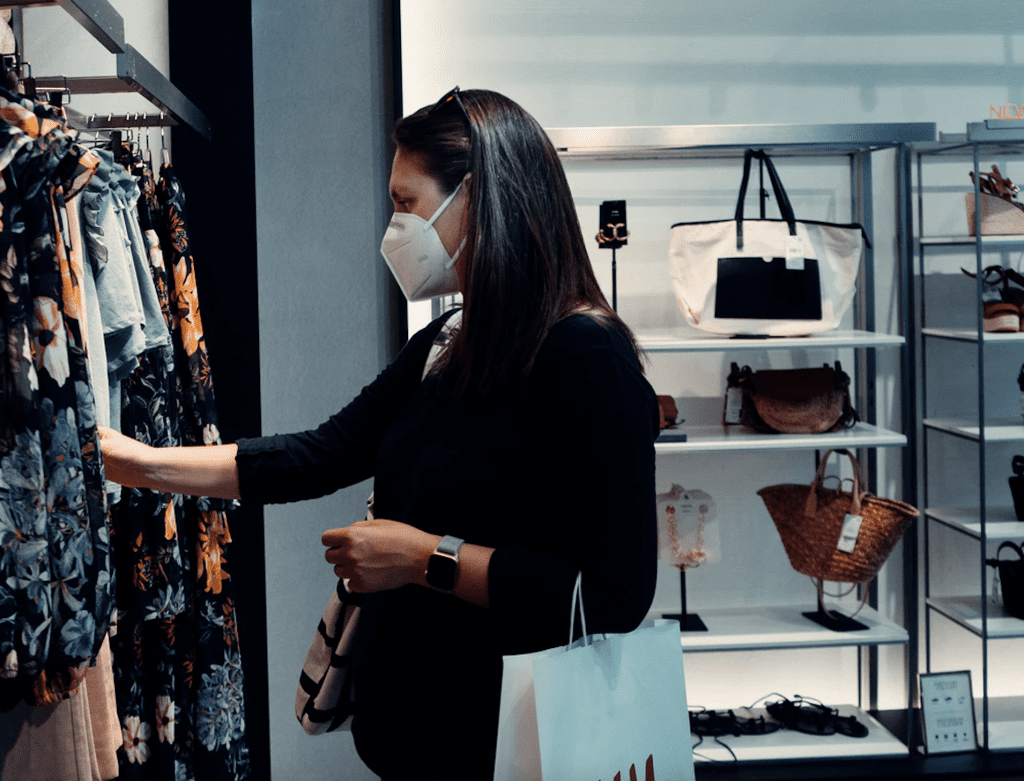A new mandate in New York City requires that consumers be able to prove that they are vaccinated in order to enter indoor public spaces – from stores and restaurants to movie theaters and gyms, and cities in California are expected to follow suit, with lawmakers in Los Angeles having proposed “a sort of ‘no shots, no service’ vaccine mandate” this month, and legislators in San Francisco, for instance, said to be exploring the introduction of a similar approach, which will take effect this month, as well. Both New York and Los Angeles’ proof of vaccination requirements, the first of their kind in the U.S., are slated to go into effect on August 16.
“It is an appealing solution for local leaders across the country who are desperately trying to fend off another, more severe wave of cases triggered by the highly contagious delta variant,” NPR’s Vanessa Romo reported. At the same time, however, the new push may put additional pressures on retailers and other businesses that are already working overtime to lure consumers back into stores following a widespread surge in e-commerce sales following the first COVID-19 outbreak last year, including from a logistical standpoint, as the call for vaccine verification will require companies to train employees, and to remain abreast of what information they need to collect and record from customers.
The Benefits of Brick & Mortar
While e-commerce sales enabled retailers to operate during the throes of pandemic lockdowns beginning last year, since strict shelter-in-place rules have increasingly lifted, retailers have been exploring ways to get customers back in stores, whether it be via inherently Instagrammable pop-ups shops and in-store exhibitions à la Tiffany & Co. and Dior, the latter of which is bringing its Dioriviera capsule collection to hotels like the Rosewood Miramar in Miramar Beach, California, or wider arrays of products and new partnerships, such as those being touted by big-box chains like Target and Kohl’s.
The impetus behind the quest to get people back into brick-and-mortar outposts? Companies’ bottom lines. “Many retailers – from department store chain Macy’s Inc to essential retailer Target Corp – are grappling with higher expenses related to e-commerce,” Reuters reported last summer, estimating that “typical online orders cost retailers roughly 10 to 15 percent more than purchases in stores, where shoppers do the work of selecting items and transporting them home.” In addition to better margins, consumers generally spend more during in-store shopping trips versus the online equivalent, management consultancy Alvarez & Marsal, a management consultancy, and researcher Retail Economics asserted in its recent “Shape of Retail” report.
And beyond that, brands have a better shot at selling more expensive goods in-store than online, as “higher priced items typically involve more considered paths to purchase, commonly relying on a ‘touch and feel’ experience in-store.”
Still yet, the cost for retailers rises online thanks to returns, which do not only “erode profitability for retailers,” according to Alvarez & Marsal and Retail Economics, they also call for “successful reverse logistics for returned items,” thereby, introducing “a host of additional infrastructure costs, too.” The balance between “providing convenient returns for online orders with the cost of doing so efficiently” is a significant struggle for many retailers, which are “battling to cater to rising customer expectations and the fragmented nature of store and home delivery networks.”
While retail giants like Amazon and Walmart “can spend heavily on projects like automation and inventory tracking to reduce e-commerce expenses,” Publicis Sapient strategy head Hilding Anderson says that this is not an option for most. As a result, getting consumers back in store helps to alleviate many of these issues.
The new consumer-focused proof of vaccination push comes as a larger vaccine mandate movement is growing, Marketplace revealed this month, citing “a long list of universities, hospitals and, increasingly, private corporations that are making the move,” with Walmart being one of the biggest names to require corporate employees – as distinct from its store and warehouse staffers – to get vaccinated. Experts anticipate that many companies will follow suit, as guidance from the Equal Employment Opportunity Commission enables employers to require employees to get vaccinated as long as employers make exceptions for employees in need of accommodation.
Vaccination Considerations
With the growing push underway, Baker McKenzie partners Susan Eandi, Benjamin Ho, and Robin Samuel encourage companies that are weighing whether to adopt mandatory vaccination policies – in many cases against the risk of losing employees when there is already a retail labor shortage at play in the U.S. – to consider the following …
State Law Requirements: If a company has locations in different U.S. states, it will need to validate its vaccine policy for compliance with the laws of each state where employees work. Mandates may be illegal in certain states that prohibit discrimination on the basis of an individual’s vaccination status, such as Montana.
Accommodating Exceptions: Vaccine mandates must allow for disability and religious accommodations. This means companies must review and validate each accommodation request on a case-by-case basis, deciding whether the accommodation can and should be granted. Unless a company is willing to categorically grant all accommodation requests, the individualized review of exemption requests will require the dedication of considerable internal resources.
Disparate Impact: Vaccination requirements may pose a risk of disparate impact discrimination claims. Disparate impact discrimination exists when an employment practice disproportionately excludes a protected group of employees, and either: (i) the policy is not job-related or consistent with business necessity; or (ii) there is a less discriminatory alternative available. Disparate impact discrimination typically is proven through statistics and does not require the existence of a discriminatory motive.
From a bottom line perspective, just as local governments can mandate that consumers show proof of vaccination in order to enter various types of establishments, they note that private employers in the U.S. “can legally mandate vaccines under federal law.”











